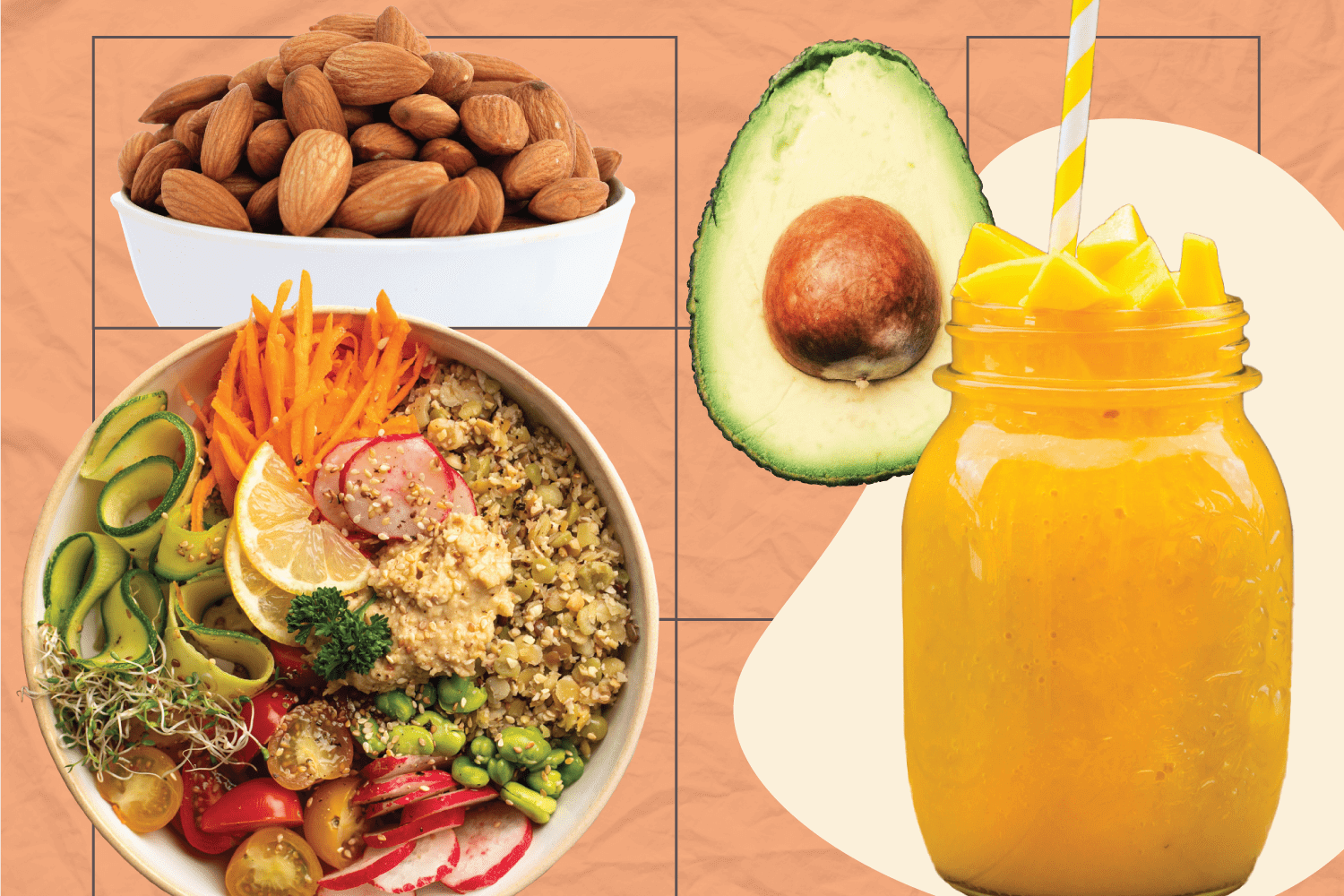Are you a vegetarian looking to cut carbs while maintaining a plant-based lifestyle? You’re not alone. With the rising popularity of low-carb diets and their proven health benefits, many vegetarians are seeking ways to reduce their carbohydrate intake without compromising their dietary principles. This guide (Carb-Free Diet as a Vegetarian) will walk you through everything you need to know about following a carb-free vegetarian diet successfully.
Table of Contents
What is a Carb-Free Vegetarian Diet?
A carb-free vegetarian diet combines the principles of vegetarianism with extremely low-carb eating. While technically no diet is completely “carb-free” (as even vegetables contain some carbohydrates), this approach focuses on minimizing carb intake while maintaining adequate protein and healthy fats through plant-based sources.
Benefits of Following a Low-Carb Vegetarian Diet
Before diving into the specifics, let’s understand why you might want to consider this dietary approach:
- Weight Management: Reducing carb intake can help control insulin levels, potentially leading to more effective weight loss.
- Blood Sugar Control: A low-carb diet can help stabilize blood sugar levels, making it beneficial for people with diabetes or insulin resistance.
- Increased Energy: Many people report more stable energy levels throughout the day when following a low-carb diet.
- Environmental Impact: Maintaining a vegetarian diet while cutting carbs allows you to continue supporting sustainable food practices.
Read also: The Ultimate Guide to a 5-Day Lusty Adventure in Bangkok from New Delhi: Nightlife, Adult Entertainment, and More
Essential Foods for a Low-Carb Vegetarian Diet
Protein Sources
- Tofu (0.7g carbs per 100g)
- Tempeh (7g carbs per 100g)
- Seitan (wheat gluten) (3.9g carbs per 100g)
- Plant-based protein powder
- Eggs (for ovo-vegetarians)
Healthy Fats
- Avocados
- Olive oil
- Coconut oil
- Nuts (in moderation)
- Seeds (chia, flax, pumpkin)
- MCT oil
Low-Carb Vegetables
- Leafy greens (spinach, kale, lettuce)
- Cruciferous vegetables (broccoli, cauliflower, Brussels sprouts)
- Zucchini
- Bell peppers
- Mushrooms
- Celery
- Cucumber
7-Day Meal Plan – Carb-Free Diet as a Vegetarian
Day 1
- Breakfast: Tofu scramble with spinach and mushrooms
- Lunch: Cauliflower rice stir-fry with tempeh
- Dinner: Zucchini noodles with avocado pesto sauce
- Snack: Celery sticks with almond butter
Day 2
- Breakfast: Chia seed pudding with unsweetened coconut milk
- Lunch: Mixed green salad with olive oil dressing and tempeh strips
- Dinner: Cauliflower crust pizza with vegan cheese and vegetables
- Snack: Mixed nuts (1/4 cup)
Day 3
- Breakfast: Protein smoothie with plant-based protein, spinach, and MCT oil
- Lunch: Lettuce wraps with mock meat filling
- Dinner: Grilled portobello mushroom steaks with asparagus
- Snack: Cucumber slices with guacamole
Day 4
- Breakfast: Keto overnight “oats” made with hemp seeds and chia
- Lunch: Buddha bowl with cauliflower rice, tofu, and avocado
- Dinner: Eggplant lasagna (using eggplant as noodles)
- Snack: Flax crackers with vegan cream cheese
Day 5
- Breakfast: Coconut yogurt with sugar-free granola
- Lunch: Spiralized zucchini salad with tempeh
- Dinner: Cauliflower mac and “cheese”
- Snack: Roasted seaweed snacks
Day 6
- Breakfast: Tofu and spinach frittata
- Lunch: Keto-friendly vegetable soup
- Dinner: Stir-fried tempeh with low-carb vegetables
- Snack: Brazil nuts and coconut chips
Day 7
- Breakfast: Avocado boats with scrambled tofu
- Lunch: Cauliflower rice sushi rolls
- Dinner: Baked tofu with roasted vegetables
- Snack: Keto fat bombs
Tips for Success
1. Plan Your Meals
Meal planning is crucial when following a carb-free vegetarian diet. Prepare your meals in advance to ensure you always have compliant foods available.
2. Focus on Protein
Getting enough protein can be challenging on a vegetarian low-carb diet. Make sure to include protein-rich foods at every meal.
3. Supplement Wisely
Consider supplementing with:
- Vitamin B12
- Iron
- Zinc
- Omega-3 fatty acids
- Vitamin D
4. Watch Hidden Carbs
Be mindful of hidden carbs in:
- Processed vegetarian foods
- Sauces and condiments
- Plant-based milk alternatives
- Meat substitutes
Common Challenges and Solutions
Challenge 1: Protein Intake
Solution: Incorporate protein-rich foods like tofu, tempeh, and seitan at every meal. Consider using plant-based protein powders as supplements.
Challenge 2: Social Situations
Solution: Research restaurant menus in advance and communicate your dietary needs clearly. Always have backup options available.
Challenge 3: Energy Levels
Solution: Ensure adequate fat intake and electrolyte balance. Consider timing your meals around your activity schedule.
Potential Side Effects and How to Manage Them
When transitioning to a carb-free vegetarian diet, you might experience:
- Initial fatigue
- Solution: Increase electrolyte intake
- Ensure adequate calorie consumption
- Consider gradual carb reduction
- Digestive changes
- Solution: Increase water intake
- Add probiotics to your diet
- Gradually increase fiber intake
- Cravings
- Solution: Keep healthy fats readily available
- Prepare low-carb substitutes for favorite foods
- Stay well-hydrated
Tracking Progress
Monitor your progress by:
- Keeping a food diary
- Taking regular measurements
- Tracking energy levels
- Noting changes in sleep quality
- Recording exercise performance
When to Modify or Stop
Consider modifying or stopping this diet if you experience:
- Persistent fatigue
- Significant digestive issues
- Irregular menstrual cycles
- Mood changes
- Decreased athletic performance
Conclusion
A carb-free vegetarian diet can be challenging but rewarding when done correctly. The key is proper planning, adequate protein intake, and attention to nutritional needs. Remember that this diet may not be suitable for everyone, and it’s essential to listen to your body and adjust accordingly.
Always consult with a healthcare provider before starting any new diet, especially one as restrictive as a carb-free vegetarian plan. They can help you determine if this approach is appropriate for your individual needs and health status.
By following the guidelines, meal plans, and tips outlined in this guide, you’ll be well-equipped to navigate the challenges of a carb-free vegetarian lifestyle while maintaining optimal nutrition and energy levels.
Remember: The most successful diet is one you can maintain long-term while meeting all your nutritional needs and supporting your overall health goals.
Read also: Top 10 Movies With Real Sex Scenes: Artistry, Controversy, and Bold Storytelling


